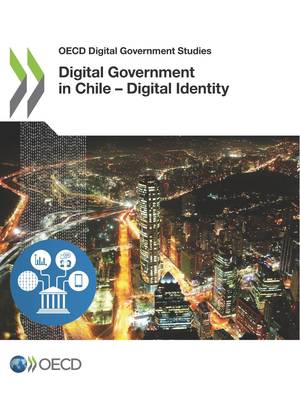
- Afhalen na 1 uur in een winkel met voorraad
- Gratis thuislevering in België vanaf € 30
- Ruim aanbod met 7 miljoen producten
- Afhalen na 1 uur in een winkel met voorraad
- Gratis thuislevering in België vanaf € 30
- Ruim aanbod met 7 miljoen producten
Omschrijving
In our interactions with the people we know we don't give any thought to the proof of their identity. When we meet someone for the first time we trust they are who they say they are. Sometimes an introduction is brokered by a mutual, trusted, acquaintance who knows both parties. However, in our transactional dealings with government there is a greater expectation - and need - to be able to prove who we are, where we live and what we can access. The provision of digital identity (DI) is critical to government ambitions for transforming the quality of public services.
This study discusses Chile's experience of DI alongside a comparison of 13 OECD countries, and aims to support the Government of Chile in developing and enhancing their approach to the development of DI as a piece of core digital government infrastructure and an enabler of seamless service delivery. The study uses a framework that covers the foundations for identity in terms of existing national identity infrastructure, policies and governance, the technical solutions that have been explored, the factors which impact adoption, and the ways in which DI can empower citizens through greater control of their data, transparency and measurement of impact.
Specificaties
Betrokkenen
- Auteur(s):
- Uitgeverij:
Inhoud
- Aantal bladzijden:
- 92
- Taal:
- Engels
- Reeks:
Eigenschappen
- Productcode (EAN):
- 9789264902435
- Verschijningsdatum:
- 18/10/2019
- Uitvoering:
- Paperback
- Formaat:
- Trade paperback (VS)
- Afmetingen:
- 210 mm x 279 mm
- Gewicht:
- 299 g

Alleen bij Standaard Boekhandel
Beoordelingen
We publiceren alleen reviews die voldoen aan de voorwaarden voor reviews. Bekijk onze voorwaarden voor reviews.











